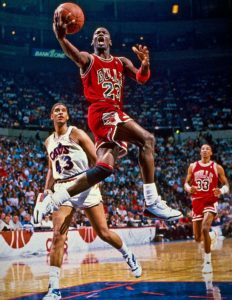Randy Webb
Bio: In our second edition of League Leaders, I had the pleasure of interviewing Mr. Randy Webb, a current professor at the University of Houston and Executive Director of the #1 ranked undergraduate sales program in the country! Randy received a Bachelor’s in Management from Florida State University and immediately began his career in sales at Dial Corporation. In 10 years, he rose to a position as Vice President of Field Sales for the company. Seeking a position with a more global organization, he transitioned to Mars-M&M brands as Vice-President of Sales where he led the reintroduction of Milky Way chocolate bars in Mexico.After 6 years as President at Uncle Ben’s Rice, Randy returned to school to get his MBA at the University of Houston where he ended up teaching.
Seeking a position with a more global organization, he transitioned to Mars-M&M brands as Vice-President of Sales where he led the reintroduction of Milky Way chocolate bars in Mexico.After 6 years as President at Uncle Ben’s Rice, Randy returned to school to get his MBA at the University of Houston where he ended up teaching.
Q: Tell me about the best sales squad you have ever led or been a part of? What led to the group’s successes?
A: My favorite team to lead was at M&M/Mars. I think that I was really able to help grow and develop that organization. We got a brand new sales organization with 300 salespeople for food service in non-tradition trade classes (vending, theaters, concessionaires etc.). This organization was diverse and well rounded and had to be.
I think what separated us was our training in our sales force and sales managers. I think that this made them one of the best-trained sales teams in the country. We would spend a lot of time on product knowledge and the sales process. For our managers, we would spend a lot of time on leading people contrary to managing people. Salespeople would spend 6 months training alongside their managers with training in negotiation and calling.
Q: What is one piece of advice you would give to someone entering field sales?
A: Do your homework. Never ever make a sales visit without knowing their business or having knowledge about the people that you’re visiting. Unfortunately, too many people worry about going out and making the presentation and they lose sight of customer needs. Your job is to find a business problem that you can help solve. You may be able to close a transactional sale but you will not develop the necessary relationship to keep the customer long term.
Q: What sports figure do you think best represents you as a sales figure and why?
A: I’m a Michael Jordan fan. I loved his work ethic. He was dropped from his high school basketball team because they thought he wouldn’t amount to anything. He just had the mentality to go do it. You can’t talk about it, you can’t wish it to happen, you have to make it happen. I liked the grit that he had in being able to not only be a great basketball player but outwork everybody. He didn’t take anything for granted all the way through his last game. As a salesperson, you must put craft into your work and get better. The way you do that is by staying up to date with the latest sales tactics and negotiation strategies.
it happen. I liked the grit that he had in being able to not only be a great basketball player but outwork everybody. He didn’t take anything for granted all the way through his last game. As a salesperson, you must put craft into your work and get better. The way you do that is by staying up to date with the latest sales tactics and negotiation strategies.
Q: How do you overcome rejection or failure? Example?
A: In sales, you get lots of nos. You have to have people that have good self-esteem. I look for 4 things in salespeople. I look for confident people. I look for folks who are committed. I look for salespeople that are curious and don’t simply look at the obvious and find customer needs. I want people who have character. I don’t want them to worry about the deals they’re making on the side. The first way to overcome rejection is by having these four qualities.
Q: Who’s your pick for the NBA MVP and NBA Champ?
A: Rockets and The Beard!
Q: What are some recent trends that you have been noticing in sales?
A: I think the biggest driver for change in sales going into the 21st century is new technology. I think that CRM tech has changed the sales game. Salespeople today can’t go out and only worry about chasing the sale. They have to be good business people. They have to have an understanding of analytics and how CRM works so that they can do the best job in uncovering a problem. On the sales management side, sales managers need to become sales leaders. That’s the difference. A leader leads people. A manager manages things. That’s why the younger generations are succeeding in transparent leadership. They ask why. Why did someone make that decision? It’s not out of disrespect, they’re truly trying to understand.



